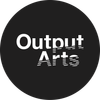Time for Tea
How you can support someone experiencing domestic abuse
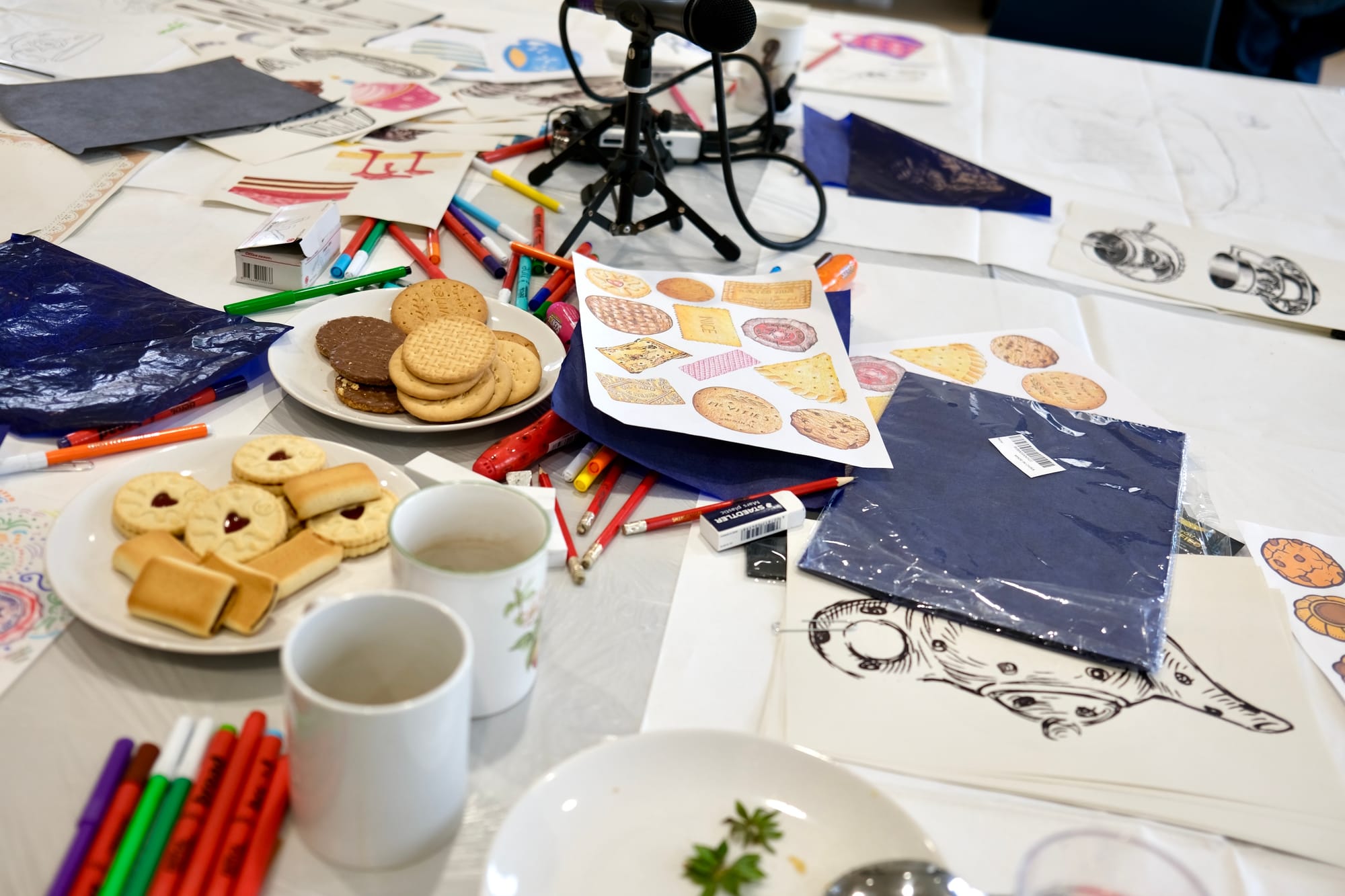
Introduction
Time for Tea is a knowledge exchange project with UCL associate professor Dr Karen Schucan Bird and four participants with lived experience of domestic abuse, supported by Solace Women's Aid and funded by ESRC and UCL. The project has looked at how informal networks – friends, families and work colleagues – can best support those experiencing domestic abuse, and how to communicate this advice to the general public. We are hugely grateful to all of our participants for their honesty, courage and willingness to work with us, and for teaching us the importance of just listening.
Phase 1: tablecloth
Output Arts often use a simple art-making activity in workshops as an ice-breaker and to creatively capture participants' thoughts. In Time for Tea, this was tracing pictures of cups, biscuits and cakes with carbon paper. This activity connected everyone in a shared activity and provided a focus of attention as we moved through sometimes emotional conversations.
This tracing activity produced a series of blue-and-white drawings that both tied in with our theme and alluded to classic Delft tea sets. These were collected into a design for a tablecloth, combining the drawings with handwritten reflections from our participants. This tablecloth then became a talking point for a series of pop-up public engagement events involving biscuits, cups of tea and a similar tracing exercise on coasters. Through these events we were able to talk about what had been learned in the workshops.




The phase 1 tablecloth and public engagement activities
Phase 2: 'zine
During the workshops in phase 1, the idea was raised by one of the participants of making a 'zine gathering everything that came out of the workshops. With the support of a grant from the Economic and Social Research Council, the project was extended to develop this idea into a practical guide to supporting someone experiencing domestic abuse.
In a series of further workshops, the content of the 'zine was structured and new artwork created. The resulting booklet combines this artwork and the direct experiences of the participants with best practice arising out of academic research. The blue carbon-paper aesthetic has been combined with typewriter-styled text to produce a work that both connects to the original tablecloth and references the handmade aesthetic of 1980s 'zines.
In addition, Output Arts have gathered some of the reflections from the workshops in a spoken-word audio installation: a round table, covered in a blue-and-white tablecloth stands in a space. Among the drawings on the tablecloth are four empty saucers. The audience are invited to place a cup on one of the saucers. In doing so, the cups begin to speak of determination and courage in the words of our participants.
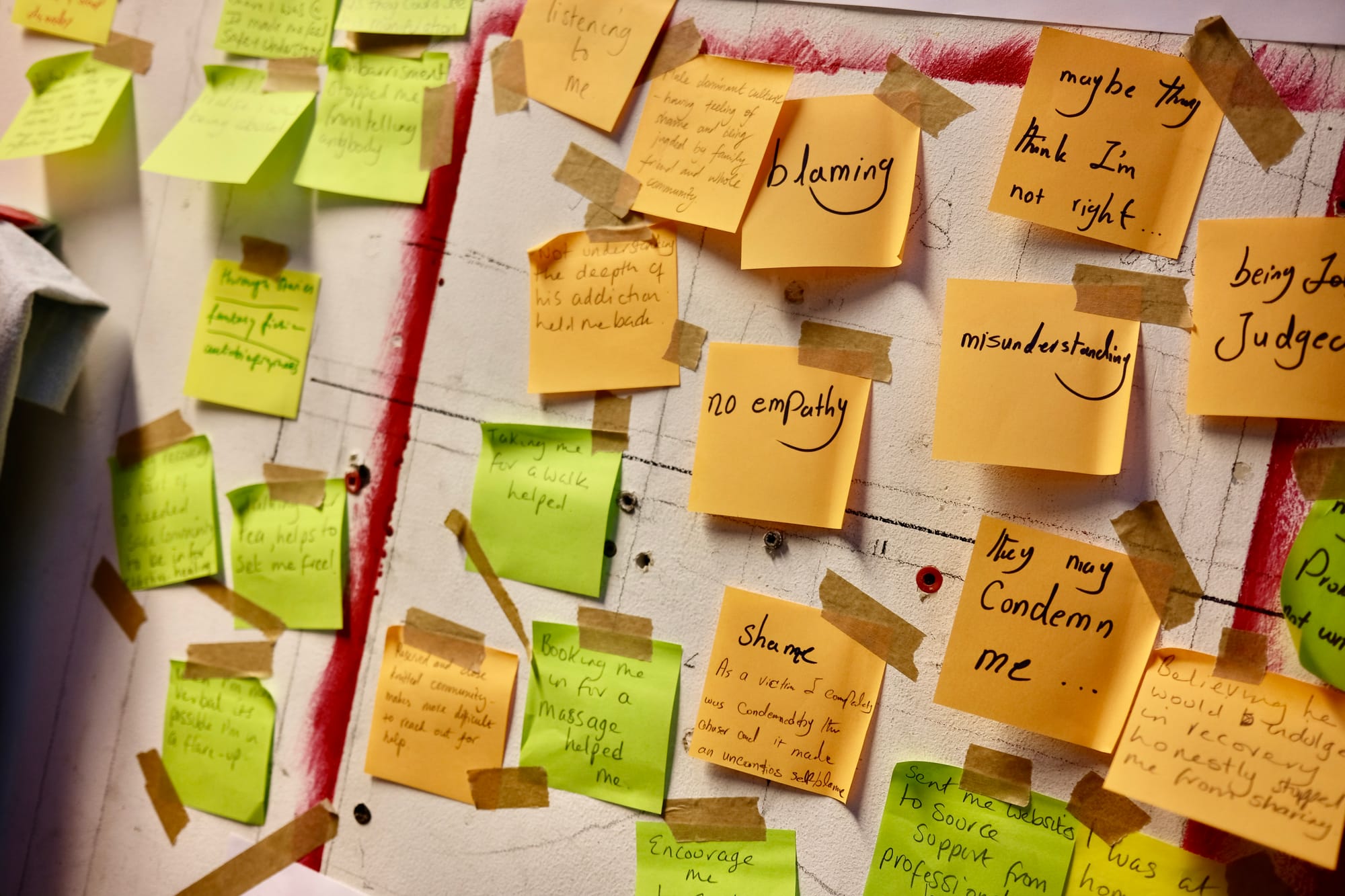
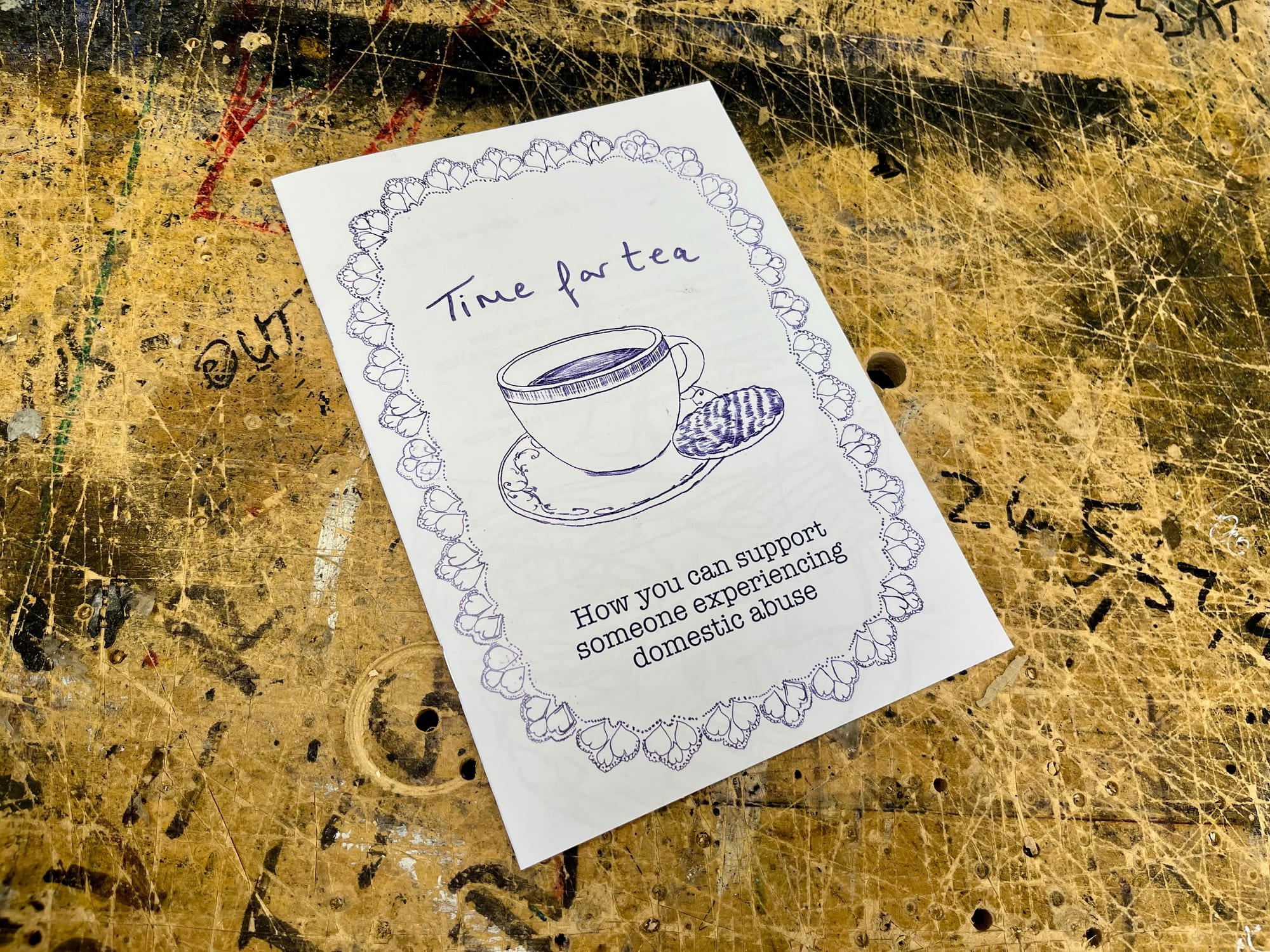
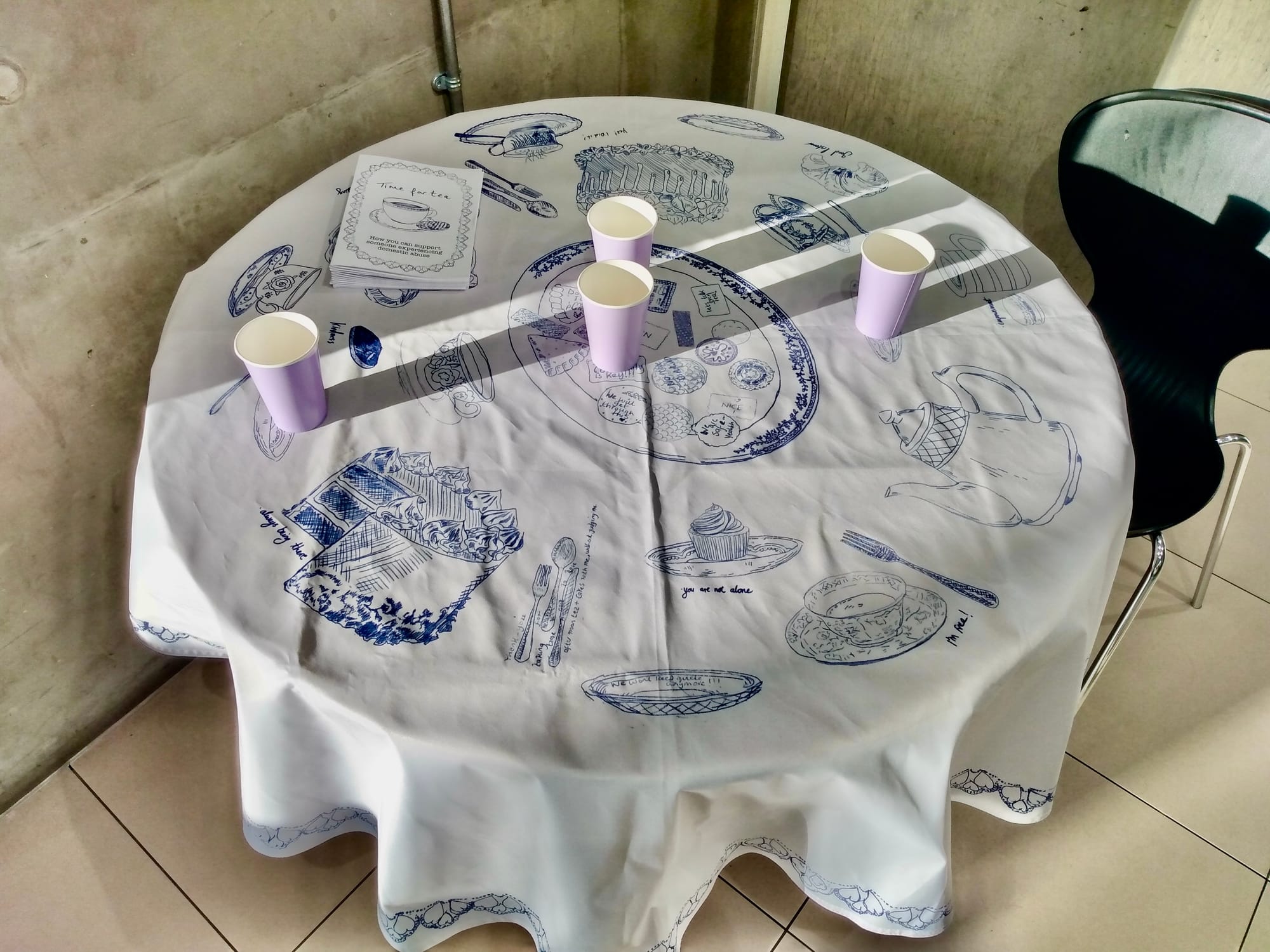
Early planning for the 'zine, the finished booklet and the talking table installation
Further help
- "How to support someone who is experiencing domestic abuse" – an article by Dr Karen Schucan Bird on The Conversation.
- "Supporting friends and family" – SafeLives' guide to helping someone experiencing domestic abuse.
Would you mind answering a couple of quick questions related to this project?
Your answers are anonymous and will be used for academic research and to support future funding applications.

